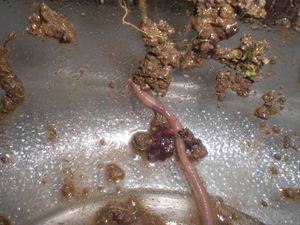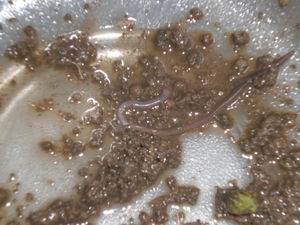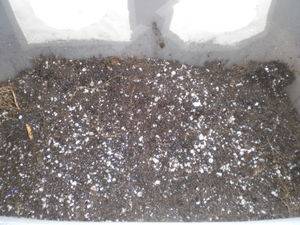Dave_the_stoner
Member
I Was working the other day and found some worms crawling through the ground I was digging up, so I took em home with me and decided to build a worm bin.
So basically I dont know if these are the proper species for composting, but I put together a rubbermaid tub with a bunch of shredded up brown paper bags in the bottom, then I added some old soil, then I added a bunch of expired produce (Lettuce, brocolli, tomato, nectarines, plums, peaches, potato, bell pepper, sugar snap peas, potatoes,ect) then I added the worms, and covered the whole works with more potting soil, followed by a misting with water.
So what do you think of my project? I only had 4 worms, so I'm thinking of propositioning the kids that are always playing around down stairs (with parental permission of course) to dig some worms up for me and pay them $0.50 each, or should I go to a bait shop and buy some there?
Heres some pics of the project:
Heres the scraps

Heres the worms


Shit i forgot to upload the pic of the other 2, but they look alot like the first one. The worm in the second pic looks different than the rest.
And heres a picture of the finished bin

And my lady just told me to add some bouncy faces so here you go






So basically I dont know if these are the proper species for composting, but I put together a rubbermaid tub with a bunch of shredded up brown paper bags in the bottom, then I added some old soil, then I added a bunch of expired produce (Lettuce, brocolli, tomato, nectarines, plums, peaches, potato, bell pepper, sugar snap peas, potatoes,ect) then I added the worms, and covered the whole works with more potting soil, followed by a misting with water.
So what do you think of my project? I only had 4 worms, so I'm thinking of propositioning the kids that are always playing around down stairs (with parental permission of course) to dig some worms up for me and pay them $0.50 each, or should I go to a bait shop and buy some there?
Heres some pics of the project:
Heres the scraps

Heres the worms


Shit i forgot to upload the pic of the other 2, but they look alot like the first one. The worm in the second pic looks different than the rest.
And heres a picture of the finished bin

And my lady just told me to add some bouncy faces so here you go









